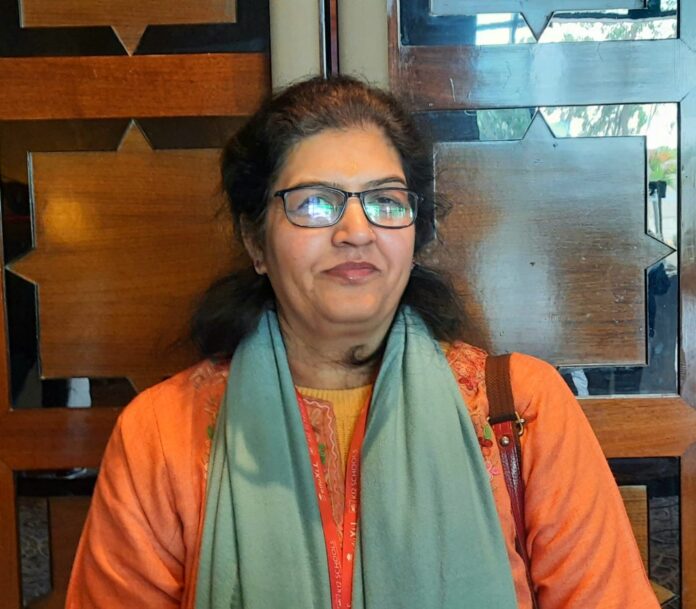The Special Centre for Nanoscience (SCNS) at JNU is a vibrant interdisciplinary hub dedicated to advancing nanoscience research and education. It focuses on a wide array of areas, including ferromagnetic nanostructures, magnetic nanocomposites, microwave absorbers, nano-devices, and targeted drug delivery for cancer treatment via RF Hyperthermia. The faculty members at SCNS come from diverse backgrounds, spanning Physics, Electronics, Biology, Materials Science, and Electron Microscopy.
Within SCNS, there are specialized labs equipped with state-of-the-art instrumentation for nanomaterial and nano-bio synthesis, along with essential characterization tools. For instance, the Nano-electronics and microwave lab enables testing of microwave nano-devices, while the Ferroelectrics and Multiferroics lab specializes in characterizing such materials. Additionally, the Nanobio lab supports human cell culture and monitors nanotoxicity, while the Thin-film lab focuses on synthesizing functional oxides and investigating lead-free ferroelectrics and antibiofilms.
Moreover, SCNS benefits from advanced analytical facilities available at the Advanced Instrumentation and Research Facility (AIRF), which is a central facility at JNU. These facilities include XRD, TEM, SEM, PPMS, and Confocal Microscope, enhancing the research capabilities of the center.
In a recent interview with The Interview World, Dr. Pratima Solanki, Assistant Professor at SCNS, JNU, highlighted the advanced programs offered by the Center. She emphasized the significant research endeavors undertaken at SCNS and their potential applications in healthcare and other domains. Here are the key excerpts from her insightful interview.
Q: What are the advanced programs offered by the Special Centre for Nanoscience at JNU?
A: The Special Centre for Nanoscience (SCNS) at Jawaharlal Nehru University offers M.Tech and PhD programs focusing on nanoscience and nanoelectronics. Students enrolled in the PhD program pursue research in various areas such as nanobiotechnology, nanoelectronics, and material sciences. Within the realm of nano-bio research, my team is engaged in the development of diverse sensors for diagnostic purposes. Specifically, we are synthesizing various nanostructure materials, including carbon dots, quantum dots, and biopolymer-based nanofibers. These biopolymer-based nanofibers hold significant potential for a range of applications, such as serving as membranes for water filtration and contributing to advancements in tissue engineering.
Q: What are the diverse applications facilitated by these nanomaterials?
A: Nanomaterials offer versatile applications, including wound dressing and various uses in nanofiber technology. Transitioning to the discussion on biosensors, these innovative devices find application in point-of-care diagnosis. They also prove useful in environmental monitoring, such as detecting mycotoxins, harmful substances produced by fungi, and pesticides in food samples.
Concurrently, efforts are directed towards disease diagnosis, particularly cancer biomarker detection for early cancer diagnosis, notably oral cancer. Collaborating with Professor Alok Thakar at AIIMS, I am obtaining samples to develop biosensors for societal benefit.
Q: Does your Centre also provide support for incubating startups?
A: We’ve incorporated the startup into the Atal Incubation Centre–Jawaharlal Nehru University Foundation for Innovation (AIC-JNUFI) to create a biosensor for detecting 25-hydroxy vitamin D. This project was acquired through the Biotechnology Industry Research Assistance Council (BIRAC) for the Biotechnology Ignition Grant Scheme (BIG). Simultaneously, we’ve also integrated the startup into AIC-JNUFI’s virtual incubation at IKP Knowledge Park (IKP), Hyderabad.
Primarily, we’ve focused on developing carbon-based screen-printing electrodes suitable for biosensor applications. Additionally, we’re engaged in the production of various nanofibers and nanoparticles, including silver nanoparticles, gold nanoparticles, and carbon-quantum dots. These materials hold significant interest for students, who can utilize them in their research endeavors.
Q: What is the extent of utilization of these products and research outputs in medical science and other fields?
A: Nanotechnology offers a myriad of applications, notably in the field of medical science, where nanoproducts play a pivotal role. Beyond medical applications, these versatile nanoproducts exhibit potential for energy harvesting and hydrogen generation, expanding their utility across multiple domains. Moreover, their adaptability extends to serving as nanocoatings, offering innovative solutions for enhancing the properties of surfaces. By applying these materials as coatings, akin to paints, on metallic surfaces and other rigid substrates, we unlock opportunities for improved functionality and durability. The multifaceted nature of nanoproducts underscores their significance in advancing various technological frontiers.




Hiya very nice site!! Guy .. Excellent .. Superb .. I will bookmark your site and take the feeds additionally?KI’m glad to find numerous helpful info right here in the publish, we need work out extra techniques on this regard, thanks for sharing. . . . . .